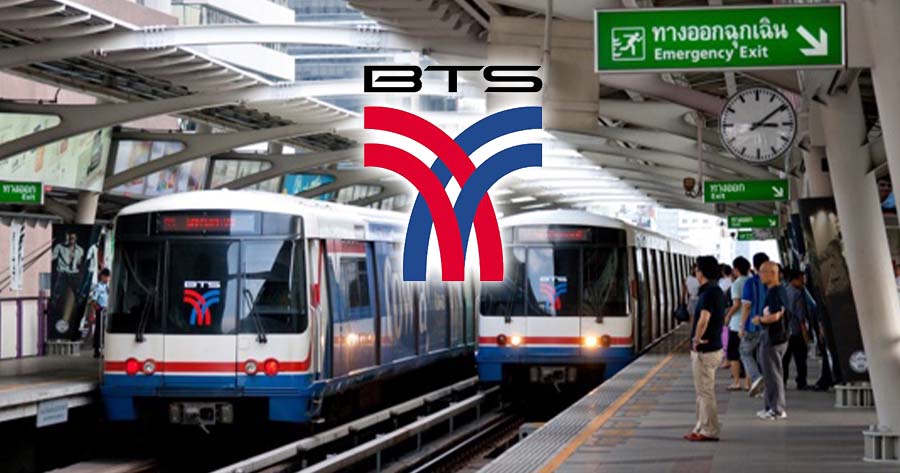Mr. Paiboon Nalinthrangkurn, President at the Investment Analysts Association (IAA) and Board Member at the Stock Exchange of Thailand (SET), commented on the new government under Prime Minister Anutin Charnvirakul regarding investment support in the stock market. He pointed out rising positive sentiment among Thai investors during the past 2-3 months as the index surged by nearly 250 points, or 24% (from around 1,060 points in mid-June 2025).
The main reason is the clearer political situation and the confidence investors have in Prime Minister Anutin’s economic team, especially with the imminent revival of the Half-Half co-payment scheme, which is expected to immediately stimulate consumption upon implementation.
According to Mr. Paiboon, the populist policies like this should be used to stimulate the economy in the short term, and not to be used excessively, given budgetary constraints and high government debt. However, such policies are necessary at this time and should be supported because the Thai economy is very weak.
He further stated that in the future, he personally hopes to see economic policies from the government that address the country’s needs not only in the short term but also in the long run—policies that are practical and positively received by society.
Mr. Paiboon also estimates that this economic team, particularly the soon-to-be Minister of Finance, Dr. Ekniti Nitithanprapas, thoroughly understands Thailand’s problems, including immediate issues, structural challenges, and the need to enhance the long-term growth potential of the Thai economy. Although the Anutin government may only have 6-7 months to work, he expects the timeframe to be sufficient for the implementation of short-term policies and lay the groundwork for tackling the country’s structural problems.
Although the overall investment climate is starting to improve, the Thai stock index is still down nearly 100 points, or -7%, since the beginning of 2025. Meanwhile, the global markets, emerging markets, and the Vietnamese stock market rose by 15%, 23%, and 32%, respectively.
He added that only 7 stock markets globally have declined (since early 2025), and only 3 countries have posted greater declines than Thailand. More alarmingly, since early 2023, the Thai stock index has dropped 22%, while the Vietnamese market rose 68%, which means it has outperformed the Thai market by 90%.
The problem with the Thai stock market is not only falling share prices. More seriously, and possibly with wider economic impact, is that the Thai stock market cannot efficiently perform its function as a source of funding for businesses. One of the stock market’s key roles is to act as a pillar for raising funds to upgrade the economy, as economic upgrades or large-scale investments in new industries require “capital” alongside “loans.”
Previously, during bull markets with many long-term investors and high liquidity—such as the decade from 2013 to 2022—fundraising in the Thai stock market, both primary and secondary markets, reached as high as THB 3 trillion, or an average of THB 300 billion annually, with some years reaching almost THB 500 billion.
When businesses can access funding from the capital market, economic activities expands rapidly. However, in the first half of this year, total funds raised in the Thai stock market dropped to only THB 23 billion, and there have not been any IPO fundraisings on the SET Index yet.
It is even more concerning if the stock market cannot resume its role as an efficient funding source, as the Thai economy is entering a period of structural transformation to enhance its long-term potential, which requires a lot of “capital” to invest in new industries.
In addition, one main issue is that the Thai stock market has too many short-term investors. Besides causing high market volatility, it also means stock prices don’t reflect the long-term value of firms as they should, which is a major obstacle to fundraising. Currently, short-term investors who focus on trading rather than holding long-term are estimated to account for as much as 70-75% of trading value, making the Thai market resemble a trading market rather than an investment market.
Mr. Paiboon stated that the first thing he wants from the Anutin government is for them to promote long-term investment in the stock market, which he expects to be a critical foundation for the sustainable recovery of the Thai stock market.
Proposals to increase long-term investors include:
- Exempting dividend tax for investors who invest in Thai stocks and hold them for more than 1 year.
- Granting income tax deductions of up to THB 500,000 per person per year for investors who directly invest in the stock market, provided the investment is retained for at least 3 years, though switching stocks is allowed.
- Continuing to support investment in Thai ESG funds at THB 300,000 per person, but making it permanent to avoid becoming a ticking time bomb like the previous LTF funds.
- Attracting investment from life insurance companies by reducing the investment risk weight for Thai stock market investments from 25% to 10% to encourage increased investment.
- Creating incentives for government-managed organizations, such as the Social Security Office of Thailand and the Government Pension Fund, to increase their investment weight in the Thai stock market.
Mr. Paiboon stated that if the government supports long-term investment in the Thai stock market while addressing the ongoing economic problem, there is a very high likelihood that the Thai stock market will return to a sustainable uptrend and resume its role as an efficient funding source.
Separately, Dr. Kobsak Pootrakool, Senior Executive Vice President at Bangkok Bank and FETCO Chairman, announced that FETCO and its seven key member organizations plan to meet with the Finance Minister to discuss strategies for boosting the Thai economy and capital market.
The agenda includes a push for a tax-advantaged Thailand Individual Savings Account (TISA) to encourage local stock investment and a proposal to extend the Super Savings Fund, which expires in 2025.
FETCO also recommends tripling the Board of Investment’s budget and staff to attract more foreign capital, increasing funding for the Tourism Authority of Thailand, and providing additional resources to the Ministry of Commerce to diversify export markets. Dr. Kobsak expressed confidence in the new economic cabinet’s readiness to implement effective economic policies.





